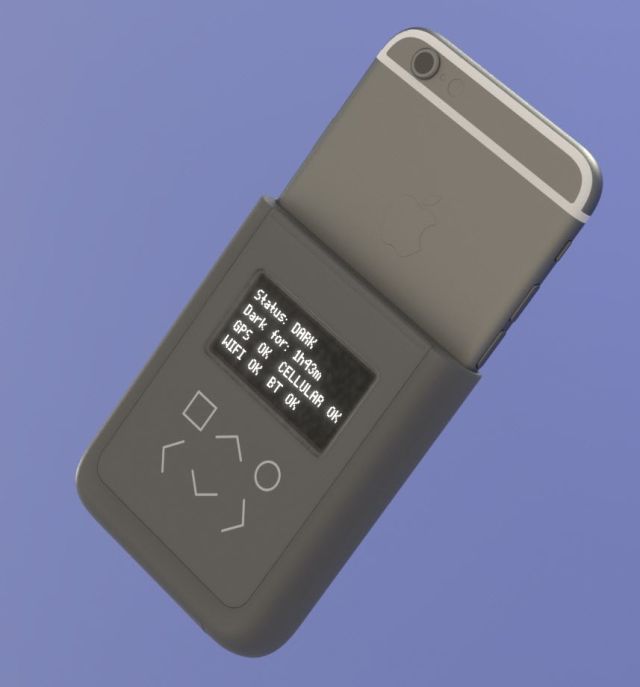Snowden designs device to warn when an iPhone is tracking users
Mobile devices have without a doubt brought convenience to the masses, but that benefit comes at a high price for journalists, activists, and human rights workers who work in war-torn regions or other high-risk environments.
 Now, NSA whistleblower Edward Snowden has designed an iPhone accessory that could one day be used to prevent the devices from leaking their whereabouts.
Now, NSA whistleblower Edward Snowden has designed an iPhone accessory that could one day be used to prevent the devices from leaking their whereabouts.
Working with renowned hardware hacker Andrew “Bunnie” Huang, Snowden has devised the design for what the team is calling the "Introspection Engine." For now, it's aimed only at iPhone 6 models, but eventually the pair hopes to create specifications for a large line of devices. Once built, the "field-ready" accessory would monitor various radio components inside the phone to confirm they're not transmitting data when a user has put the device into airplane mode. The hardware is designed to be independent from the mobile device, under the assumption that malware-infected smartphones are a fact of life in high-risk environments.
Detecting intoxicated smartphones
"Malware packages, peddled by hackers at a price accessible by private individuals, can activate radios without any indication from the user interface," Huang and Snowden wrote in a blog post published Thursday. "Trusting a phone that has been hacked to go into airplane mode is like trusting a drunk person to judge if they are sober enough to drive."
The Introspection Engine is a separate mini-computer that's made up entirely of open source hardware. It contains its own battery and screen to provide a real-time status of the phone it monitors. Its mission: warn when malware or technical glitches are causing phones to rat out a user's location.

Much of the current iPhone 6 Introspection Engine design came from reading repair manuals that contained blueprints for the phone's layout. Using those specifications, Snowden and Huang's design is able to monitor the status of the radios for cellular, GPS, Wi-Fi, and Bluetooth functions. Rather than monitor the nearfield communication function that enables Apple Pay, the pair decided to largely disable it by disconnecting its antenna under the assumption that it's not something journalists in conflict zones will need. Should attacks be developed that can exploit the much more limited NFC capabilities, the Introspection Engine could be updated to disable them altogether.
The design was presented Thursday at the MIT Media Lab’s Forbidden Research event. Over the next year, the pair hopes to build a prototype that tests the design in real-world settings. But they warn that the project is being funded on a "shoestring budget," so don't expect the Introspection Engine to be available any time soon.
Axarhöfði 14,
110 Reykjavik, Iceland














